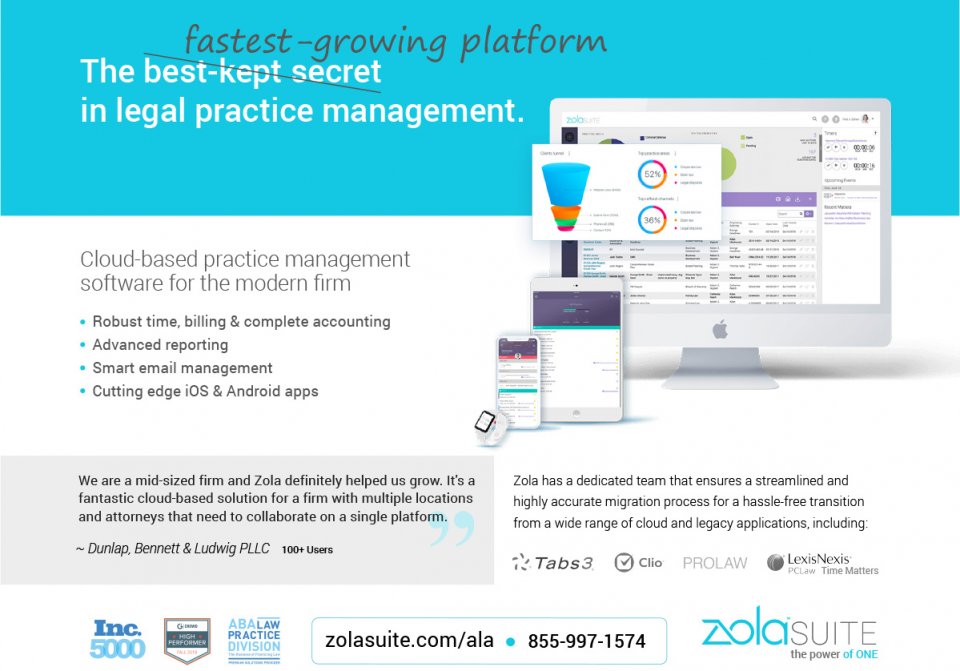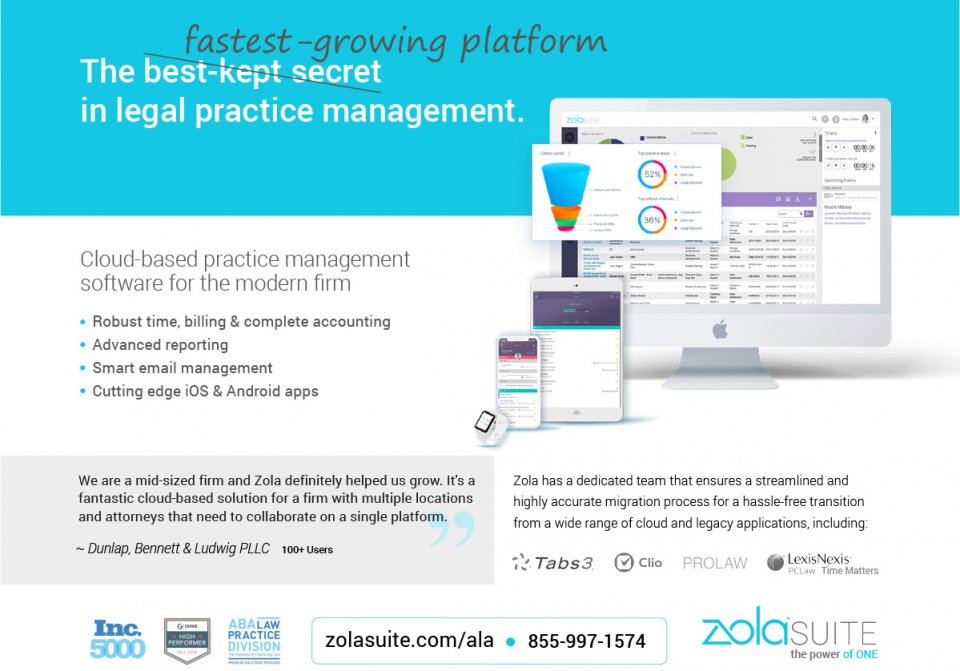As if you didn’t have enough to worry about.
Fortunately, there are practical steps every legal management professional can take to minimize revenue loss. Here, we outline practices you can start today so you can sleep better tonight.
KEEP INVOICE DELIVERY ON TRACK AND ON TIME
Issuing a bill months after the matter closes sends the message that you’re not in a hurry to get paid. Even if your firm follows up with a phone call or late notice, it’s difficult for the client to take your payment demands seriously.
Late invoices also cause predicaments for corporate clients. Chances are, they’ve already entered the legal spend as an expense in their ledgers and reported it to their chief executive officer and corporate board. If they hadn’t received the final bill when they entered the expense, they would have made an educated guess about the total. That can work if everything goes according to plan, but it’s problematic if anything exceeded the original scope of the work.
If the bill exceeds that budget line item, expect pushback and negotiations.
Being methodical about billing and ensuring you send invoices as soon as services are completed helps reduce write-offs. Giving attorneys and paralegals firm deadlines to submit billable hours also helps ensure bills are ready in a timely manner.
Finally, if a client is late in making payments, follow up with them consistently. Call or write the client within a week after the due date so the matter stays top-of-mind for them.
INCREASE TRANSPARENCY
No one likes paying high legal bills, but what clients hate even more is being surprised by a higher-than-expected legal bill. Sticker shock is a sure path to payment delays.
Although it can be difficult and uncomfortable, it’s important to have candid conversations about costs and expenses before any work begins. Who within your firm should be deputized to have these conversations? The size of your organization and available personnel dictates the answer, but it’s important to remember that clients generally want their attorneys focused on their cases, not collections, if possible. That means the lucky person could be you, the firm administrator. An upfront billing conversation with a client will go far in eliminating any surprises down the road. And for that, the client will thank you.
No one likes paying high legal bills, but what clients hate even more is being surprised by a higher-than-expected legal bill. Sticker shock is a sure path to payment delays.
The State of the Legal Market report shows that firms experience bottom-line benefits from keeping clients in the loop. The first benefit is that they are less likely to be forced into appeasing upset clients with discounts and prebill write-downs. The second benefit is that clients pay their bills more quickly.
Another component of transparency is establishing an up-front agreement with the client about your firm’s billing arrangements. After all, if a client’s preferred arrangement is available, they are more likely to pay promptly.
Most law firms offer billable hours and retainer arrangements. Alternative fee arrangements (AFAs) are also essential tools that firms use to meet clients’ needs.
If your firm questions the efficacy of AFAs, consider that, across the board, both high-performing firms and struggling ones draw about one-fourth of their annual revenue from AFAs, according to the State of the Legal Market. The key difference? High-performing firms initiate these arrangements, while the rest trigger them only upon request of the client. The takeaway here is law firms that want to lower their accounts receivable would benefit from a deep dive on AFAs.
Creating standards around AFAs also leads to improved budgeting and forecasting, which can in turn improve a firm’s overall billing realization rate.
LEVERAGE TECHNOLOGY AS YOUR BILLING SYSTEM’S BEST FRIEND
Whether your firm relies on billable hours, retainers, AFAs or other arrangements, if you’re still using a manual, paper check system for issuing and receiving payments, your firm is at risk of losing significant revenue. The hit to your bottom line comes from costs related to:
- Printing invoices
- Staff time for stuffing envelopes
- Postage
- Waiting for invoices to be delivered via the mail
- Waiting to receive payment
- Processing checks
The quickest and cheapest way to invoice your clients — and receive and process payment — is with digital tools. In other words, email, credit cards and online payment processing systems. Although these methods are widely accepted — and expected — in the majority of consumer and business transactions, law firms resist adopting the practice.
If your firm needs convincing, consider the following benefits:
- Digital tools eliminate delays caused by mail and check float time, reducing time-consuming reconciliation processes and speeding up invoicing and recurring payment plans — all of which can increase cash flow.
- Digital tools give your firm access to funds faster, so monthly forecasting can be more accurate and reliable.
- Email-based billing systems make it easy to send friendly reminders before payments are due.
- Digital tools automate older processes, such as manual-based collections, including information gathering and account prioritization. This can tie up so much staff time that they spend only 20% of their collection activities in direct communication with the customer, according to PayStream Advisors.
- Recapture as much as one-third of your business’ write-offs by using online payments in a collections campaign.
- Digital payment options can increase client satisfaction. For example, although your firm may only be open during business hours, your website is available 24 hours a day. That means you have the ability to accept payments all day, every day. Setting up a secure online payment portal is the best way to make sure clients can pay you on their schedule.
Today’s law firms must adjust their business practices to address the new reality of doing more with less, thereby frequently finding themselves with less flexibility and narrower margins to absorb revenue loss. Taking steps to speed up the billing cycle and make it more efficient is one way to successfully reduce write-off rates from the industry average to the single-digit range. And legal management professionals can play a significant role in realizing that success.


